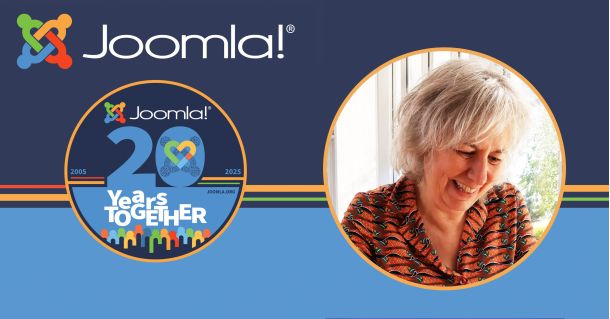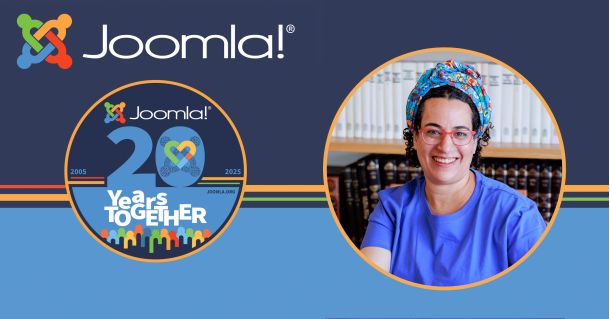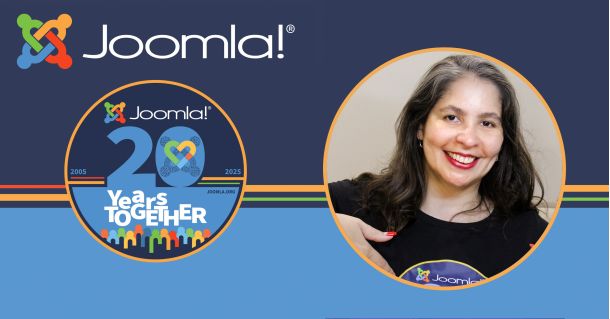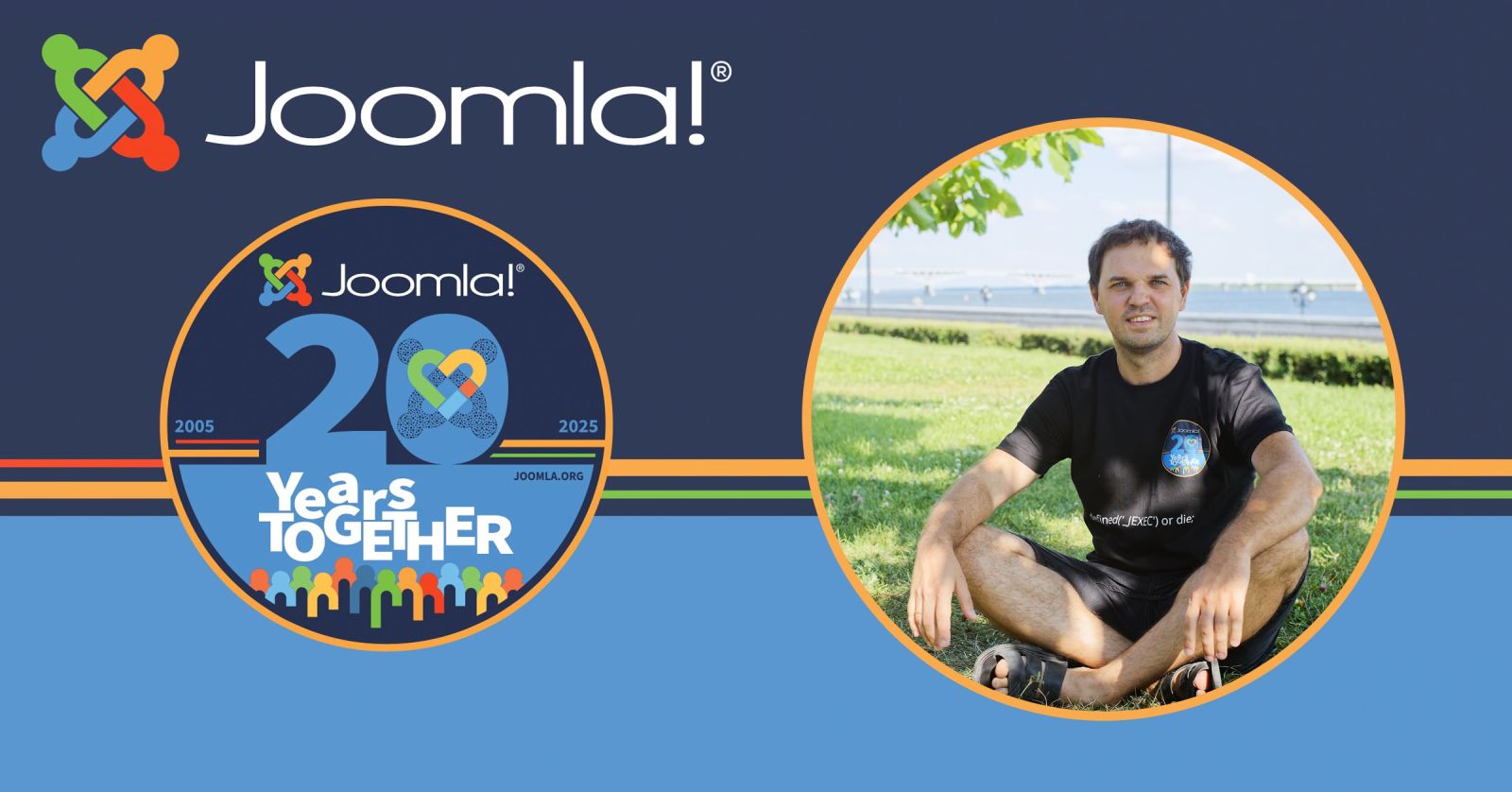
Joomla in faces. Sergey Tolkachyov (developer)
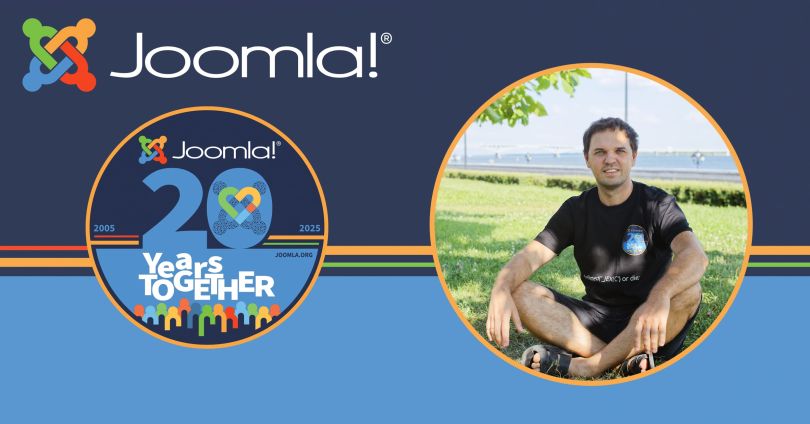
- Published: 12 September 2025
- Last modified: 07 January 2026


At first, Joomla was a hobby for him, but it later became his main occupation. Today, Sergey is a moderator of the Russian Joomla community chat, a contributor to the Joomla core, and the developer of more than 90 extensions, most of which are free. Let's get to know him. Tell us a bit about yourself.
1. Let’s get to know you. Tell us a bit about yourself.
I'm from Saratov, Russia. By education, I'm a musician: I have a degree in music theory from a college of music, and I graduated from the conservatory as a composer. I also began, but for various reasons did not complete, a post-graduate assistantship. I worked as a teacher in music schools for 12 years and was the head of a city-wide teachers' association. For a decade, I also directed a choir at an Orthodox Christian Sunday school.

"I have developed and maintain more than 90 free extensions for Joomla"
Sergey
Currently, I write articles about Joomla development and translate articles from the Joomla Community Magazine, the official documentation, and articles from other Joomla developers into Russian, supplementing them with my own experience. I am one of the moderators of the Russian Joomla community chat. My main professional focus is ensuring the long-term support and development of the websites and online stores I have created. That's why I don't have a large number of clients, but I typically work with each one for 5 to 7 years. At the time of writing, I have developed and maintain more than 90 free extensions for Joomla. Some of them are available in the official Joomla Extensions Directory (JED). Several of my pull requests have been merged into the Joomla core on GitHub. I officially became a Joomla developer in 2019. Before that, I worked with Joomla as a regular webmaster, installing and configuring ready-made extensions.
On a personal note, I am a husband and father of two daughters and a son. I'm also a church chorister and bell-ringer. I love taking long walks through forests and ravines (the trendy word for it is hiking).
2. How did your first Joomla website come about?
Back in the summer of 2007, during my second year at the conservatory, I pitched an idea to my classmates: let's create a website dedicated to classical music, musicology, and cultural events in Saratov. Within two months, I was the only one left working on it. That project, musstudent.ru, became my passion for the next decade.
It started as a simple static HTML site that I edited directly via FTP. That site was my training ground—I taught myself everything there: HTML, CSS, responsive design, and JavaScript. It was a true hobby, the kind you pour your heart into late at night, connecting to the internet over a painfully slow and expensive dial-up modem.
As the site grew, I started exploring CMS options in 2008. I looked at several, including WordPress and Joomla, but I ultimately chose Joomla. My first attempt was with Joomla 1.0.12, but I really started my journey with version 1.5.
3. Why did you choose Joomla?
I believe the choice of a CMS often comes down to a specific way of thinking. People with similar mindsets and approaches to development come together and create a product a CMS that inherits and embodies that mindset. Somehow, intuitively, Joomla just clicked with me, and I've been with it ever since.
My first music site was text-heavy, essentially a small online library. For me, it was crucial to have a logical and flexible way to catalog all that content, both in terms of data entry and the overall information architecture. I remember how thrilled I was when Joomla introduced the ability to create more than three levels of nested categories! It was a game-changer for my project.
After a while, word got out about my hobby, and people started approaching me to help with their websites. The more I worked on these projects, the more I learned about Joomla and web development in general. Eventually, the income from this "hobby" became comparable to my main job, and they effectively swapped places.
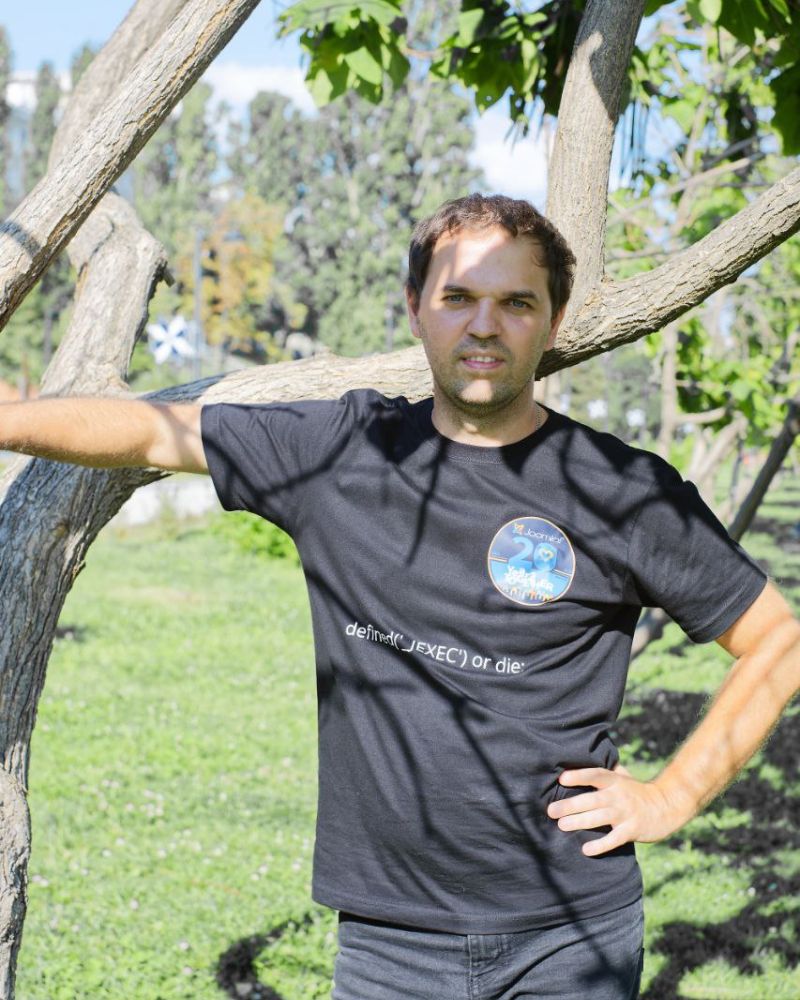
4. What were the biggest challenges you faced, and how did you overcome them?

"The most significant personal challenge, however, was figuring out what I truly enjoyed doing—and consequently, what I was best at."
Sergey
A CMS like Joomla is a paradise for a full-stack developer. You are essentially combining the roles of up to eight different specialists — from marketer and SEO expert to content manager, backend and frontend developer — into one. To deliver results for a client, you need to know a little about a lot. So, the biggest challenge is the need for constant learning, to keep your skills and knowledge up-to-date with the latest trends. Of course, you'll always have your core strengths and secondary skills, but the hunger to learn has to be there.
The most significant personal challenge, however, was figuring out what I truly enjoyed doing—and consequently, what I was best at. It takes time, years of trial and error, to understand your strengths, develop them, and then build up the related skills around them.
Let me give you an example: In 2019, I was just starting my journey into developing Joomla extensions. I was absolutely ecstatic, ready to jump for joy, the first time I saw my PHP code working perfectly without breaking anything in Joomla itself. I created several extensions just for practice, to get a feel for it.
I created my developer website and even launched ads... You can imagine my surprise when the orders didn't come flooding in. It was time to take my own medicine—to apply the advice I gave my clients: understand the market, find my place in it, and chart a path forward.
The first thing I had to do, besides learning how to write good PHP code for Joomla extensions, was to earn the community's trust. Okay, but how do you do that? You have to understand WHO they are, WHAT they need, and WHEN they need it. To figure that out, I had to look at the developer I was a few years earlier.
I rebuilt my website from the ground up. I made all my Joomla extensions free at that point, no matter how much time and effort I had invested. And people started downloading and using them.
Then, the feedback began to trickle in. Some users reported bugs, others requested new features. That's where the opportunity was.
Alongside my ongoing client work, I focused on developing my extensions: creating new versions, writing documentation, and taking screenshots. It's an incredible amount of work. Sometimes, the development itself takes less time than creating bilingual screenshots, writing documentation in two languages, and recording a video tutorial on how to use and configure a module or plugin.
But this groundwork started to pay off. Before people contact you, they visit your site multiple times, try out a few of your extensions, and see how well they work, how they're documented, and how clearly they solve problems. I started getting more and more inquiries, which led me to my current model: commercial custom extension development.
However, if I see potential in an extension, I always propose to the client that we release it for free to the entire Joomla community. I tell them I'll do all the work for free — the documentation, videos, and screenshots. In some cases, I've even offered a discount on the development fee.
And it worked. My site began to feature modules and plugins that genuinely solved problems and met real needs. They were downloaded, and users requested modifications. New versions were released; the work was already paid for, and the results were made freely available to the entire Joomla community.
While my business model has evolved slightly since then, I still strive to contribute to the community. It's an incredible feeling when your work is in demand and benefits a large number of people. It's incredibly motivating!
5. The Russian Joomla Community: How did you get involved?
Around the same time I was learning the ropes of development, I joined the Russian Joomla community. At first, communication happened through the joomlaforum.ru, but nowadays, the forum as a primary communication tool is more or less dead. Everyone has moved to messengers and chats, with the forum serving as a long-term knowledge base of questions and answers.
I joined the Joomla Telegram chat, got involved, asked questions, and received answers. I want to give a huge thanks to this community, which is full of responsive people always ready to offer quick, free advice and help. They might tell you, "This code is a mess! Look, in this method, you need to do it like this..." but they always point you in the right direction.
And that's one of the best forms of learning! Soon, I started answering questions and helping newcomers in the community myself. This community also has a news channel where they post updates about templates, Joomla extensions, and new CMS versions. I began submitting information about my extensions to this channel, and they started publishing them.
6. What kind of impact did this participation have?
It generated even more user feedback. The amazing thing is, people start coming to you with tasks you genuinely enjoy solving. Because so many people use your work, they already know who you are. Some even follow you on social media. Communicating with them is much easier than scouring freelance marketplaces for work. I'd compare it to running a blog, but instead of daily posts about your life, you're sharing the results of your labor—your technical creations.
You have to understand that in this process, you are constantly learning something new. You might write a plugin in 3 days, and six months later, you'll write the same plugin in 4 hours, with much higher-quality code.

And you think to yourself:
"I should have had my own hands chopped off six months ago for writing code like that..."
Sergey
7. The world of open source is built on a simple principle: to get something, you have to give something back.
This can be your time, your skills, your experience, or your money (if you're a client). Without this two-way communication, nothing happens. This is perhaps one of the most important conclusions from my journey. I believe it's something to discuss with clients, suggesting they find ways to sponsor and support the open-source world.
8. Have you worked with any other CMS?
I've taken on a few projects with other CMS like WordPress, Modx, and Bitrix, but those were one-off jobs. Now, if I'm offered such work, I decline. There's more than enough Joomla work to do, and I don't have the time or mental bandwidth to split my focus across other systems.
9. How good is Joomla for building websites? Why?
Joomla is just a tool. Every tool is designed for a specific range of tasks. Being an open-source project, I prefer to talk about the evolution of the tool.
Joomla occupies a unique middle ground between a traditional CMS and a pure PHP development framework like Laravel or Yii. It tries to "sit on two chairs." On one hand, it's a CMS, which unfortunately lowers the barrier to entry for those wanting a "code-free site in 3 hours." On the other hand, its underlying framework requires knowledge of its API, its strengths and weaknesses, and the implementation methods used in its core—just like any other professional framework. This significantly raises the barrier for anyone wanting to move beyond those basic "no-code" sites. Especially with Joomla 4/5, professional tools like PHPStorm or VS Code are practically essential.
Unfortunately, the freelance market is flooded with low-budget projects. In a way, this "tarnishes" the reputation of what is actually a great tool.
Joomla is truly excellent for development. If you solve clients' problems through custom development, you can earn a good living, and Joomla and its ecosystem will continue to thrive.
Joomla is a very capable system for building websites — it wouldn't have lasted this long or held its position in the rankings otherwise. But you have to know how to use it. The same task can be accomplished using only core features, with third-party extensions, or through a hybrid approach — everyone has their preferred method. But remember, as I said before, the choice of a CMS often depends on a person's mindset. If it aligns with the mindset inherited by the CMS from its creators, then you're on the right path and looking in the same direction.
10. Why is Joomla good?
We can list Joomla's inherent strengths: it's fast, secure, regularly updated, and allows you to build everything from a simple five-page site to complex systems with numerous third-party integrations. Joomla offers multiple ways to solve problems: a unique system for overriding page layouts, child templates, a REST API for those using reactive frontends, and a vast number of extensions.
But it's also crucial to have a realistic assessment of your own skill with this tool and your ability to look ahead and correctly forecast a project's growth.
Not every project requires a complex solution.
Not every site will need to scale in the near future. And sometimes, clients don't actually need a website — they just don't know it yet.
11. The Russian and International Joomla Communities. How active are you in them?
I'd say the Russian Joomla community placed a great deal of trust in me (Vadim Kunitsyn in particular), by giving me the opportunity to work with its resources. It has become a part of my life. There are several of us, each with our own role: some work on official Joomla project news, others maintain the website and forum, some moderate the forum, and others translate Joomla into Russian.
I typically dedicate at least 8 hours of my work time per month to Joomla open source. This includes writing or translating an article (which can take from 1.5 to 8 hours), researching for the news channel, answering newcomers in the chat, maintaining the site, and more. It often takes much more time than planned.
I'm less active in the international community due to time constraints, but I try to focus some attention not just on my own content and extensions, but also on the Joomla core itself. When you feel you have the ability to make a great tool even better, you should do it. Usually, these are changes that either solve a problem you're facing or will help you solve a similar problem faster and easier in the future.

"Joomla has a well-developed structure, and its operation can be compared to an orchestra."
Sergey
Joomla has a well-developed structure, and its operation can be compared to an orchestra. The better each individual instrument sounds, the more powerful and moving the performance of the musical whole will be. All you need to do is join that orchestra.
12. Joomla is 20 years old
In the IT world, everything is in a constant state of flux. 20 years is a significant age for a software product. Joomla brings together like-minded people from all over the world, and I'm happy to be a part of this community. But in any era of change, it's vital to remain flexible and responsive. I wish Joomla many more years of successfully helping people solve problems by providing the necessary toolkit.
I am profoundly grateful to the people in the Joomla community for their dedication and responsiveness. That is truly priceless. And of course, I wish for growth and development, both for the community as a whole and for every single one of its members.



